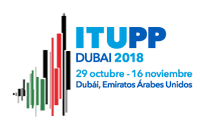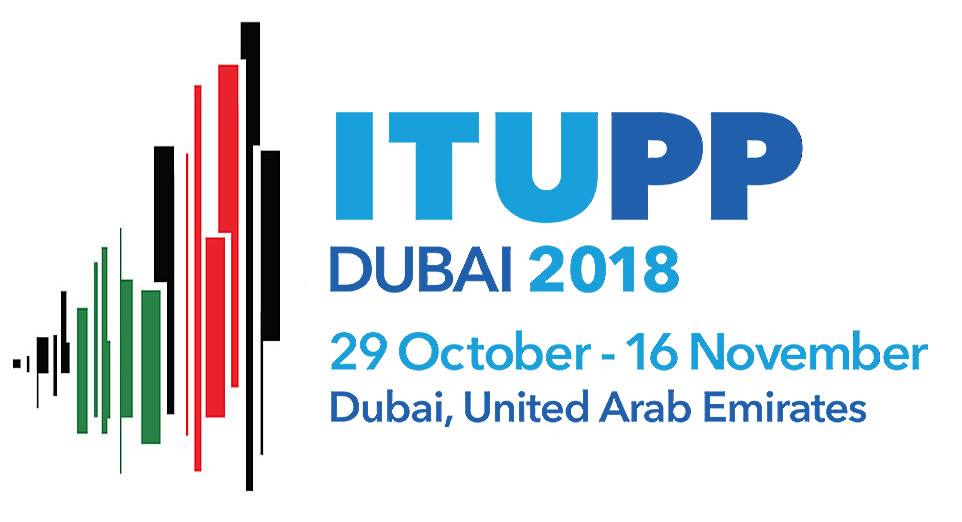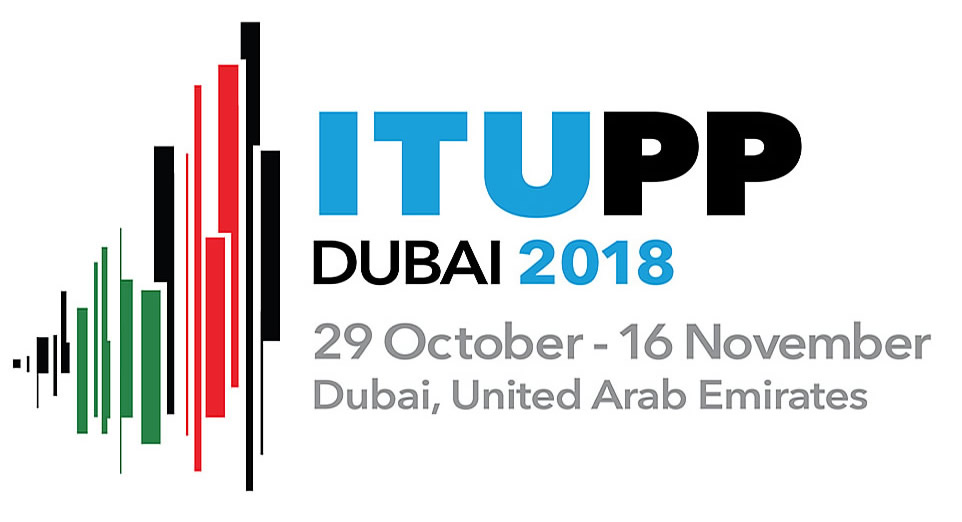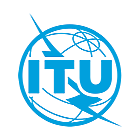I bring you greetings and best wishes of the President of the Federal Republic of Nigeria, His Excellency President Muhammudu Buhari GCFR, and of the people of Nigeria. Permit me to also commend the Government and people of the United Arab Emirates for the hospitality extended to my delegation since our arrival to this country and to the International Telecommunication Union for the excellent arrangements made for this Conference. I would also like to join others in commending the Secretary General of the ITU, Mr. Houlin Zhao, and his team for the great work they have done in steering the affairs of the Union over the past four years.
Nigeria is a major market in the West African sub region, as it remains Africa’s most populous nation. The country is also endowed with abundant human and material resources and therefore has what it takes to attract the attention of potential investors to its untapped ICT market.
The Nigerian Government has recognized the important role played by ICT in catalyzing other sectors of the economy, as well as socio-economic transformation of its citizenry, which is critical to national development.
Therefore, after due consultations with ICT and telecoms stakeholders’ home and abroad, the Government came up with various programmes and plans that are all encompassing. The focus areas amongst others include:
- National ICT Policy
- National Broadband Plan
- National ICT Roadmap
- National eGovernment MasterPlan
- National Addressing System
- Local Content Policy
Through the implementation of these initiatives, we are bringing greater clarity and predictability to the Nigerian ICT sector. Our policy framework is in line with the ITU’s Strategic Plan, particularly its identified goals and targets of Growth, Inclusiveness, Sustainability, and Innovation and Partnership.
The Government has engaged investors at different fora to attract Foreign Direct Investments (FDI). Nigeria has witnessed a great increase in the number of market players, unprecedented growth in the networks, empowerment of the Nigerian citizens, job creation, economic stimulation, and substantial increase in access to ICT. There are available statistics to show that Nigeria is no doubt, in the throes of a technological revolution, leapfrogging computers in favour of Internet connections through mobile devices. In fact, substantial parts of the country now have access to broadband connection, a figure predicted to triple in the next two years.
The combination of the internet and mobile cellular phones opens up tremendous opportunities for Nigeria. In the past four years, we have seen mobile subscription increase from 87 million active lines to over 160 Million and mobile internet subscription stood at 90 million as at September this year.
Our policy focus in Nigeria is in step with the reality of this mobile internet revolution: we are looking to create a viable environment for the proliferation of lower priced devices, increased investment in network infrastructure, and increased availability of spectrum for mobile broadband, in the knowledge that these will further drive growth.
With respect to growth, the primary contribution of the telecommunications and information services sector to Nigeria’s GDP is growing and was about ten and a half percent (10.44%) in 2013; it is now 12% in 2018. In this regard, Government developed the National Broadband Plan and Strategy with a target of increasing broadband penetration from about 10% in 2014 to about 30% in 2018. Government has facilitated the growth of broadband penetration, an epicenter of growth restoration principle of the Economic Recovery and Growth Plan (ERGP), from well over 17% to 23% with the hope of meeting the 30% target of the National Broadband Plan (NBP) by the end of year 2018. To achieve this target, various programmes and initiatives have been initiated to entrench development in both the wireless and fixed broadband infrastructure. A review of the extant Land Use Act to accommodate the overriding objective of technological advancement is being considered on the Right of Way imbroglio.
The sector also indirectly impacts GDP through its influence on other key sectors; for example, in 2013, ICTs were responsible for twelve percent (12.05%) of the value added by the Finance and Insurance sector to GDP. In terms of socio-economic growth, ICTs are helping Government to meet health objectives, and are amplifying benefits in the education and agriculture sectors. The Government has licensed Infrastructure companies (Infracos) for deployment of fiber infrastructure to ensure pervasive access to the internet. ICT contribution to GDP has increased to 10% from 8% in 2014 and teledensity is now at 116.26 %. FDI in the sector has increased from $3.2b in 2015 to about $4b in 2018.
Government has issued Executive Orders that will significantly change some of the ways government business and operations are conducted in the country forthwith. To further bring transparency and accountability, we are planning to synchronize operations of different Ministries, Departments and Agencies in Nigeria to ease the way of doing business and for effective service delivery. The development of relevant e-commerce and data protection laws are being considered.
A Critical Technology Infrastructure Protection Law geared towards the promotion of infrastructure development and security of technology assets in Nigeria is being considered. Also being considered is the establishment of a specialized ICT Development Bank to provide funding for ICT stakeholders/tech start-ups at low interest rates to boost productivity in the industry.
The present Administration of Nigeria recognizes the crucial role ICT play in National Development across all sectors of the Nigerian economy. To us in Nigeria, ICT development is crucial to provide a ubiquitous, robust and cost-effective ICT infrastructure to support the creation of a digital economy; while leveraging on the opportunities in ICT for the nation’s socio-economic development.
Nigeria is using telecommunications and ICTs to build a more inclusive society. Our broadband initiatives, which are being implemented across technologies and at various levels of governance, are in line with the Union’s priority of bridging the digital divide and providing broadband for all. Furthermore, these initiatives are cognizant of the needs of women and girls, as well as other marginalised groups of our society.
In the same token, the sector has enabled numerous public services that are available online and through mobile phones applications. We now have increased active mobile broadband penetration within the space of two years from less than 10% in 2015 to about 23% in 2018.
Nigeria is ranked 115th in the 2018 Global Competitiveness Report of the World Economic Forum. The country’s latest position on global competitiveness index is a significant improvement, compared with the 125th position it was placed in 2017. Nigeria was ranked 127th on the 2016 index.
The rapid growth in telecoms, which has an investment value of over $70 billion, with a subscriber base of over 165 million from 400,000 working lines in 2001, and contributing about 12% to Nigeria’s GDP, is a clear reflection of its huge contribution to Nigeria’s economy.
Mr. Chairman, Nigeria has been an active member of the Union since April, 1961 Six (6) Months after independence; Nigeria is the first African Country to Chair ITU World Radiocommunication Conference (WRC) in 2015, Chaired ITU Conference Committees, hosted a number of ITU meetings, Vice-Chair of a number of Study Groups and Conference Committees, host to one of the ITU centres of excellence and has been a member of the Council for decades. Nigeria is one of the highest contributors in Africa and will continue to support the ITU in all capacity. I wish to inform the Conference that His Excellency President Muhammadu Buhari has approved the presentation of Nigeria for re-election into the ITU Administrative Council seat and presentation of Mr. William Ijeh as Nigeria’s candidate for the post of Director of the Telecommunication Development Bureau of the International Telecommunication Union, having held several full-time and part-time positions within the Union, and has also worked in the telecommunications industry in both developed and developing economies. He therefore fully grasps the broad range of issues, challenges and opportunities that the ITU will have to address in the coming years. He is extremely well prepared to support the elected Secretary-General in steering the Union to deliver on the expected outcomes of its stakeholders.
I hereby solicit your invaluable support for our candidature as member of the ITU Council and candidate of Mr. William Ijeh for the post of Director of the Telecommunication Development Bureau of the International Telecommunication Union.
Finally, Mr Chairman, Ministers, CEO and respected delegates may I use this opportunity to invite to a reception on today 31st October, 2018 by 7:30pm at the Bobble Lounge.
Thank you all for your kind attention.






